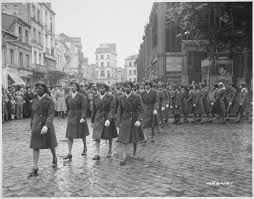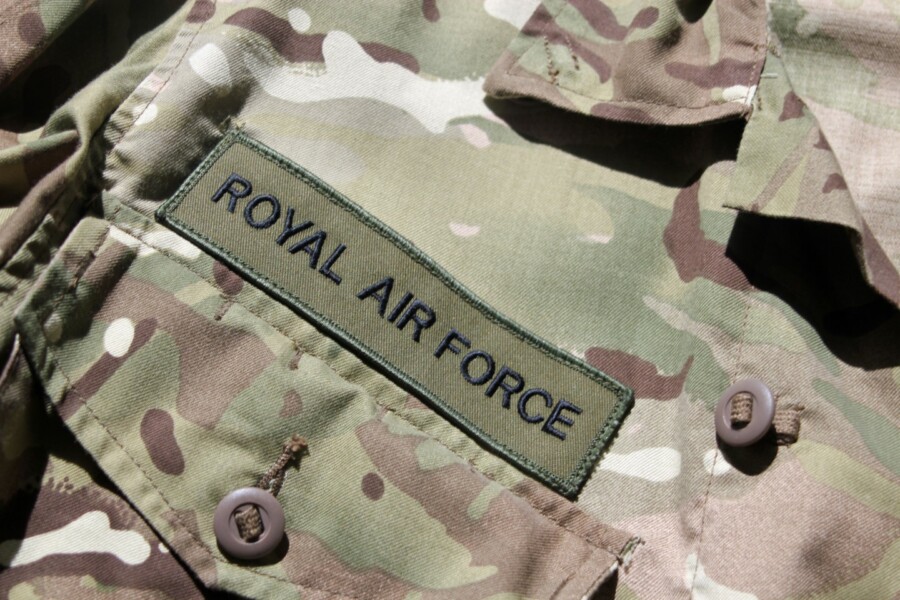Girls just wanna Have fundamental rights: Does Equality really exist in the Armed Forces?
The Women’s Army Auxillary Corps enabled the enrolment of women into the British Army for the first time in July 1917. Yet it took almost 100 years for women to be afforded the right to fight on the frontline.
It is a stark reality that men still make up a significant proportion of those serving in the British Armed Forces, with women making up only 10% of the Army, 9.2% of the Navy and 13.8% of the RAF. But times are a changing and it’s time to look at whether the British Military are really shedding their macho image and sending out the right message about gender equality.
Until recently, women serving in the British Armed Forces were only allowed to serve on the frontline providing medical care and carrying out bomb disposals, but were not permitted to serve in the Infantry, the Royal Armed Corps or the Household Cavalry where they would be involved in close combat. But in countries such as the US, Australia and France, female soldiers have been allowed to serve in active combat roles since 2013 and it was thought that the British Armed Forces were lagging behind and that there should be a move towards improving equality in the British Military. But this was by no means an easy move, nor has the reaction to the change been entirely positive.
 Prior to the ban on women serving on the frontline being lifted in November 2016, the Ministry of Defence conducted a two year review of whether women would be able to meet the physical requirements of serving on the frontline. Whilst it found that there was no evidence that women would not be able to cope, impending changes to the standard of fitness testing required to serve on the frontline have been met with criticism with some arguing that standards are being lowered in order to accommodate women and one ex-Army chief going as far as to say that it would be a “foolish move” and that it would be “paid for in blood” if female rights to serve on the frontline were aligned with those of men. Former Commander of the British Armed Forces in Afghanistan, Richard Kemp, went even further by saying that “no matter how courageous or physically tough a woman might be, she simply does not fit into this testosterone charged band of brothers and is likely therefore to reduce the cohesion and fighting effectiveness of a small combat unit.”
Prior to the ban on women serving on the frontline being lifted in November 2016, the Ministry of Defence conducted a two year review of whether women would be able to meet the physical requirements of serving on the frontline. Whilst it found that there was no evidence that women would not be able to cope, impending changes to the standard of fitness testing required to serve on the frontline have been met with criticism with some arguing that standards are being lowered in order to accommodate women and one ex-Army chief going as far as to say that it would be a “foolish move” and that it would be “paid for in blood” if female rights to serve on the frontline were aligned with those of men. Former Commander of the British Armed Forces in Afghanistan, Richard Kemp, went even further by saying that “no matter how courageous or physically tough a woman might be, she simply does not fit into this testosterone charged band of brothers and is likely therefore to reduce the cohesion and fighting effectiveness of a small combat unit.”
It of course has to be acknowledged that women are physically different to men, but many argue that this is not a lowering of standards. rather a reflection of changes in society and an increase in opportunities for women to serve in the full range of roles and a maximisation of military resources. Perhaps we are starting to see some positive changes. There are now more women serving in the Armed Forces than in any other period since the end of World War II and the ban on women serving in combat roles has now been lifted with the first woman working in frontline combat in the Royal Armoured Corps in November 2016. The RAF followed suit in September 2017 and became the first branch of the British Military to allow women to apply for any role. It is hoped that this will be extended to all areas of the Armed Forces by the end of 2018 with women being given the opportunity to serve in significant frontline roles in the Infantry, the Marines and some Special Forces.
But more needs to be done and despite these changes many still report that it is not easy being a woman in the Armed Forces with alarmingly high levels of sexual harassment another indication of the lack of equality and the challenges that women face.
In 2014, a Reddit thread which asked women in the Armed Forces to share their experiences of sexism and sexual harassment went viral. The post received over 30,000 comments, many of which detailed alleged bullying, rape and threatening behavior. One of the most common complaints made by women was that they felt their authority was being questioned because of their gender.
A further study in 2015 found that nearly 4 out of 10 women in the Army received unwanted comments or were exposed to material of a sexual nature in the preceding year. Extensive research has been conducted on four occasions by the Ministry of Defence since 2006, with General Sir Nick Carter stating concern that the Army has “an overly sexualised culture in which inappropriate behaviour is deemed acceptable.”
What goes on is by no means a secret. Yet between 2006 and 2016 the evidence suggests that not much has changed. If we are truly to see a move towards equality in the Armed Forces these statistics must drastically change, but so must reporting of incidents of sexual harassment. It is worrying that reporting rates for those affected by sexual harassment are woefully low, with only about 3% of those servicewomen who were “very upset” about an incident making a formal written complaint.
Let’s end on a positive. There are some small signs that women in the Armed Forces are starting to get the support and recognition they deserve. In February 2015, Staff Sergeant Kate Lord received the prestigious Queen’s Commendation for Valuable Services for challenging the opinions of young men in the Afghan National Army, who accused her of “being weak.” Earlier, in January 2015, the Army’s first transgender Officer, Hannah Winterbourne, was praised for speaking openly about realising her “body was wrong” whilst she was serving in Afghanistan.
It still remains the case that the biggest challenge the majority of women will face in the Armed Forces is equality, which given the nature of the role is concerning. Unless every physical test and standard is gender free, this is likely to always be the case. But by celebrating women who have managed to rise through the ranks they pave the way for others to do the same and that can only be a good thing.
Claire Withey is a senior solicitor in the Military Claims team at Bolt Burdon Kemp. If you or a loved one have a claim, contact Claire free of charge and in confidence on 020 7288 4821 or at ClaireWithey@boltburdonkemp.co.uk. Alternatively, complete this form and one of the solicitors in the Military team will contact you. Find out more about the team Military Claims team.









